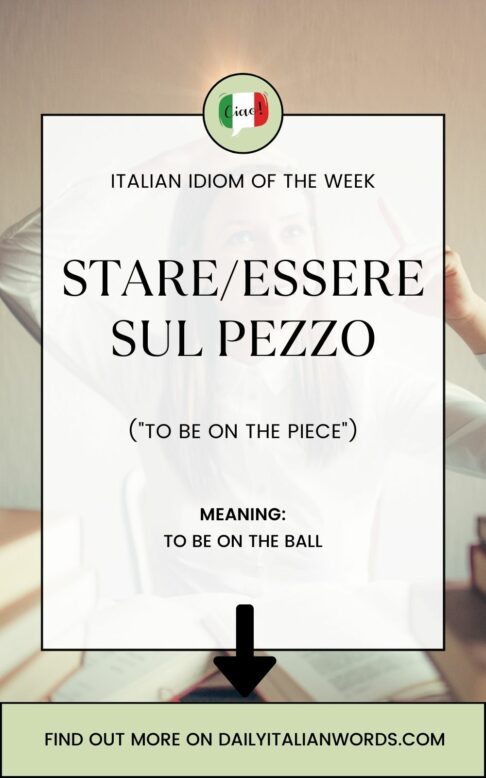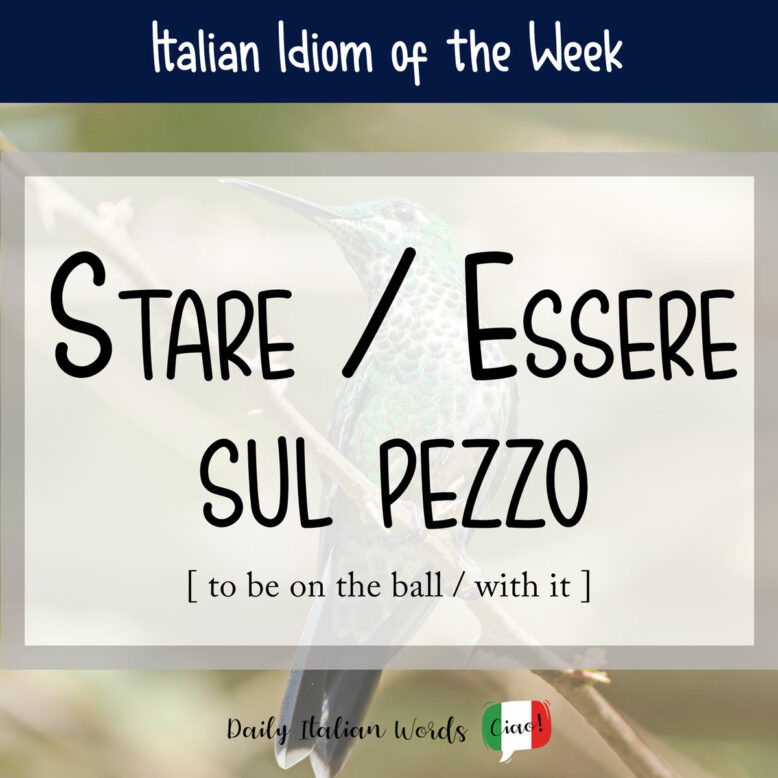Stare sul pezzo in Italian translates to being “on the ball”, “with it” or “on top of things” in English. It’s the perfect colloquial idiom to describe someone who is alert, attentive, and up-to-date with what’s going on around them.
A variation on this idiom is essere sul pezzo, which replaces the verb stare (“to stay” but also “to be” in some cases) with essere (to be). Between the two, stare is used more than essere but both are valid options in modern standard Italian.
Essere / stare sul pezzo
to be on the ball / with it / on top of things

According to Accademia della Crusca, the phrase likely originated from military lingo. In a study on barracks slang, Lorenzo Renzi highlighted al pezzo among expressions popularised after World War II, meaning “at one’s workplace“, especially in artillery positions.
Al pezzo soon evolved into stare / essere sul pezzo, especially within the industrial production sphere, signifying the importance of maintaining focus on the task at hand. Nowhere was this more crucial than on the assembly line, where each worker dedicated themselves to a specific step (or ‘piece’) of the production process.

Its recent integration into common language can be attributed to journalistic jargon, with pezzo directly referring to a pezzo giornalistico (news article). If you are “on the pezzo“, you diligently follow a current event.
In today’s context, this expression has expanded in meaning. It now denotes the practice of consistently staying informed and keeping up with the latest trends and developments, whether they are newsworthy or not.
Carla sta sempre sul pezzo. Non c’è da stupirsi che sia diventata una brava giornalista!
Carla is always on top of things. It’s no wonder she became a good journalist!

Heather Broster is a graduate with honours in linguistics from the University of Western Ontario. She is an aspiring polyglot, proficient in English and Italian, as well as Japanese, Welsh, and French to varying degrees of fluency. Originally from Toronto, Heather has resided in various countries, notably Italy for a period of six years. Her primary focus lies in the fields of language acquisition, education, and bilingual instruction.


